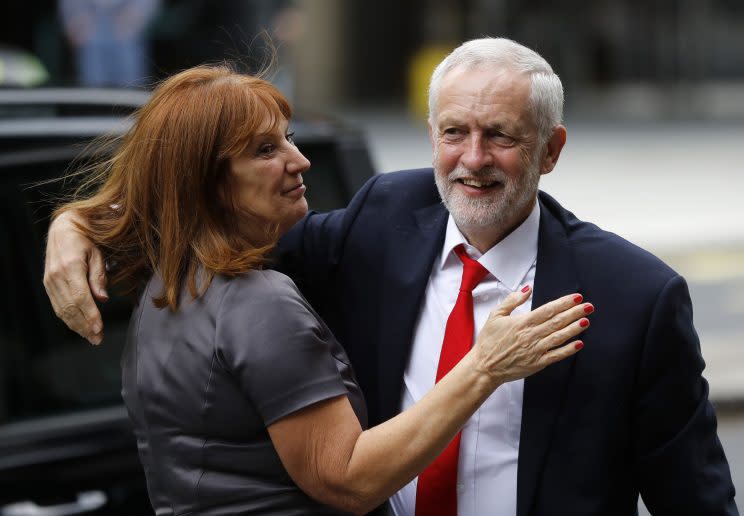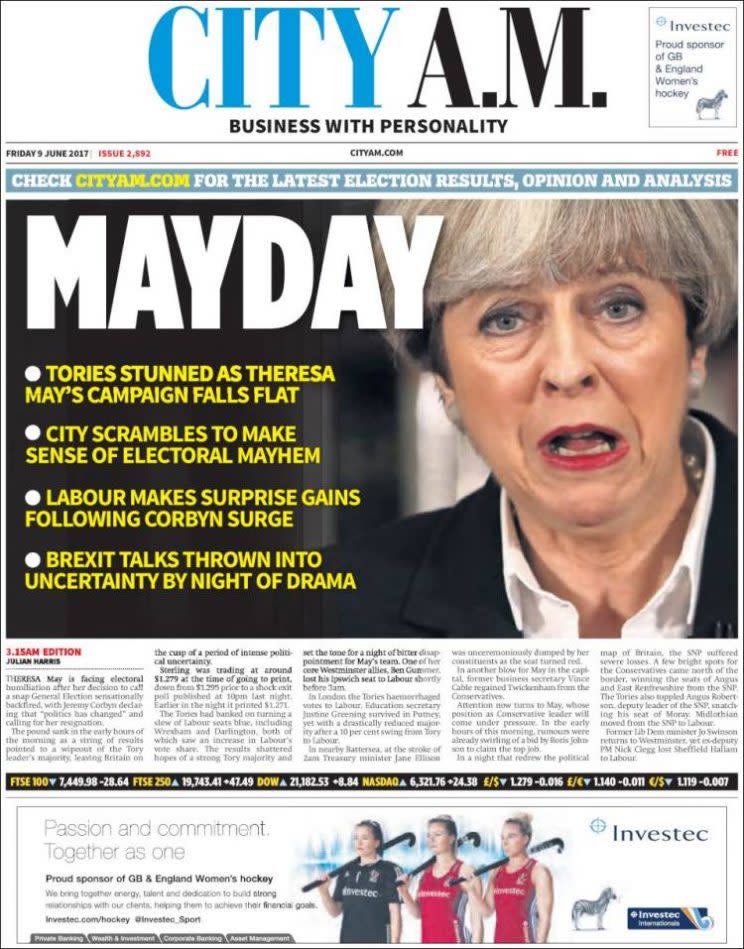5 reasons Theresa May’s gamble backfired so badly

At the start of the campaign, Jeremy Corbyn’s Labour lagged some 20 points behind in the polls – and it seemed like Theresa May had an open goal.
Theresa May’s failure to secure a majority has dealt her a crippling blow – with bookmakers Paddy Power currently offering odds of 5/1 on Foreign Secretary Boris Johnson becoming the next Prime Minister.
Right up until data from exit polls was released, polling companies were predicting a large Conservative majority, with BMG giving the Tories a 13-point lead.
GENERAL ELECTION 2017 LIVE BLOG: Rolling updates
MORE: Election result could see UK backtrack on Brexit – David Davis
MORE: Sterling swings as markets react to hung Parliament
MORE: Theresa May ‘I’m staying’
So what went wrong? Several factors were in play – caused both by May’s lacklustre performance, and a savvy campaign by Jeremy Corbyn’s Labour.
Large numbers of students voted in the election

Large numbers of students were reported to have registered to vote in the run-up to the election – and the Labour vote was higher in constituencies with large numbers of under-25s.
NUS president Malia Bouattia said: “We have seen the student vote play a key role in marginal seats across the UK.”
Corbyn was backed by grime artists such as Stormzy and Jme – and campaigners Momentum also targeted the youth vote.
Pushed by a high youth turnout, which stood at 72 per cent, the Labour leader amassed 12.8 million votes – higher than Tony Blair’s 2005 record.
Corbyn’s positive message struck home

At the beginning of the election, Labour’s manifesto was dismissed by some in the media as the “second longest suicide note in history”, echoing criticism of Michael Foot’s manifesto back in 1983.
But his message on re-nationalising the railways, ending tuition fees and funding of public services appears to have got through to voters.
It was a stark contrast to a negative Conservative campaign driven by attack adverts against their ‘unelectable’ opponent.
May hid from voters
Theresa May repeatedly turned down TV and radio appearances – leading to accusations she was ‘taking voters for granted’.
When Jeremy Corbyn joined a BBC leader’s TV debate, he urged May to join him saying May’s failure to do so would be ‘another sign’ of weakness.
Plaid Cymru’s Leanne Wood opened the debate saying that May was ‘taking voters for granted.’
The social care U-turn
Theresa May’s highly publicised U-turn on making the elderly pay for their social care led to accusations of ‘chaos, confusion and indecision’.
May did not mention the idea of a cap on the amount the elderly would have to pay in her manifesto – but rapidly said there would be one, after a backlash against the policy.
May did not set out what the ‘cap’ would be – and she was grilled by Andrew Neil in a highly combative interview.
She accused Jeremy Corbyn of trying ‘to sneak into No 10 by playing on the fears of older and vulnerable people’.
High turnout

“MAYDAY” (ALERTA).
The overall turnout of the election was 68.7 per cent – up 2.6 per cent from 2015.
Many of the new voters were Labour supporters: the party saw gains in seats where turnout rose by more than 5%, the Independent reports.
Pushed by a high youth turnout, which stood at 72 per cent, the Labour leader amassed 12.8 million votes – higher than Tony Blair’s 2005 record

 Yahoo News
Yahoo News 


